Related Research Articles
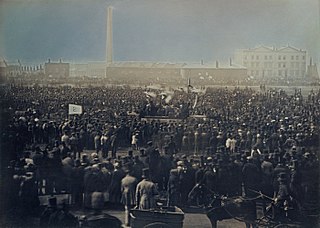
Chartism was a working-class movement for political reform in the United Kingdom that erupted from 1838 to 1857 and was strongest in 1839, 1842 and 1848. It took its name from the People's Charter of 1838 and was a national protest movement, with particular strongholds of support in Northern England, the East Midlands, the Staffordshire Potteries, the Black Country and the South Wales Valleys, where working people depended on single industries and were subject to wild swings in economic activity. Chartism was less strong in places, such as Bristol, that had more diversified economies. The movement was fiercely opposed by government authorities, who finally suppressed it.

Feargus Edward O'Connor was an Irish Chartist leader and advocate of the Land Plan, which sought to provide smallholdings for the labouring classes. A highly charismatic figure, O'Connor was admired for his energy and oratory, but was criticised for alleged egotism. His newspaper Northern Star (1837–1852) was widely read among workers, becoming the voice of the Chartist movement.
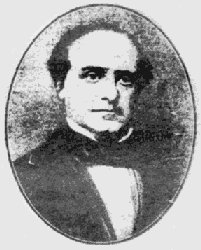
Ernest Charles Jones was an English poet, novelist and Chartist. Dorothy Thompson points out that Jones was born into the landed gentry, became a barrister, and left a large documentary record. "He is the best-remembered of the Chartist leaders, among the pioneers of the modern Labour movement, and a friend of both Marx and Engels."

Joseph Rayner Stephens was a Methodist minister who offended the Wesleyan Conference by his support for separating the Church of England from the State. Resigning from the Wesleyan Connection, he became free to campaign for factory reform, and against the New Poor Law. He became associated with 'physical force' Chartism and spent eighteen months in jail for his presence at an unlawful assembly and his use there of seditious language. Born in Edinburgh in 1805, he moved to Manchester when his minister father was posted there in 1819. During his religious career, he worked in a variety of places before arriving in Ashton-under-Lyne in 1832. He was the brother of the philologist George Stephens.; three of his other brothers emigrated to Southern Australia and played their parts in the early years of that colony.

The London Working Men's Association was an organisation established in London in 1836. It was one of the foundations of Chartism, advocating for universal male suffrage, equally-populated electoral districts, the abolition of property qualifications for MPs, annual Parliaments, the payment of MPs, and the establishment of secret ballot voting. The founders were William Lovett, Francis Place and Henry Hetherington. They appealed to skilled workers rather than the mass of unskilled factory labourers. They were associated with Owenite socialism and the movement for general education.

William Lovett was a British activist and leader of the Chartist political movement. He was one of the leading London-based artisan radicals of his generation.

George Julian Harney was a British political activist, journalist, and Chartist leader. He was also associated with Marxism, socialism, and universal suffrage.
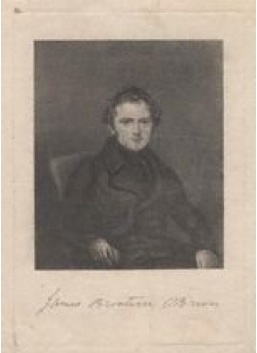
James Bronterre O'Brien was an Irish Chartist leader, reformer and journalist.

Henry Hetherington was an English printer, bookseller, publisher and newspaper proprietor who campaigned for social justice, a free press, universal suffrage and religious freethought. Together with his close associates, William Lovett, John Cleave and James Watson, he was a leading member of numerous co-operative and radical groups, including the Owenite British Association for the Promotion of Co-operative Knowledge, the National Union of the Working Classes and the London Working Men's Association. As proprietor of [[The Poor Man's Guardian|The Poor Man's Guardian]] he played a major role in the "War of the Unstamped" and was imprisoned three times for refusing to pay newspaper stamp duty. He was a leader of the "moral force" wing of the Chartist movement and a supporter of pro-democracy movements in other countries. His name is included on the Reformers' Memorial in Kensal Green Cemetery.
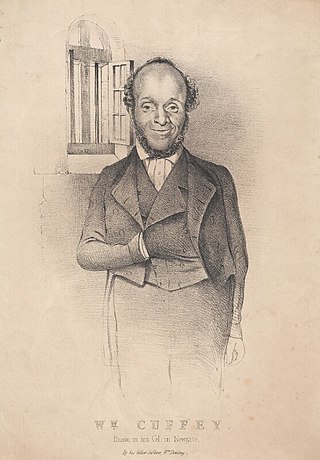
William Cuffay was a Chartist leader in early Victorian London.

The Red Republican was a British newspaper espousing socialist views. It was published from 22 June 1850 to 30 November 1850, after which it was renamed The Friend of the People.

The Northern Star and Leeds General Advertiser was a chartist newspaper published in Britain between 1837 and 1852, and best known for advancing the reform issues articulated by proprietor Feargus O'Connor.

Joshua Hobson (1810–1876) was a British Chartist and Tory Radical who was the first publisher of the Book of Murder, a pamphlet attacking the 1834 Poor Law Amendment Act. From 1838 to 1844 he was the publisher of the Chartist newspaper Northern Star.
David Goodway is a British historian and a respected international authority on Chartism and on anarchism and libertarian socialism.
The Fraternal Democrats was a left-wing political international that promoted working-class internationalism. Based in London, the organisation counted members from half a dozen European countries, many of whom had fled from their home countries. The Fraternal Democrats were largely democratic, republican and socialist in orientation, although they also counted Chartists, communists and nationalists among their ranks. With its membership largely based in Britain, the organisation was never gained a truly international character, as it was unable to establish national sections within other countries. The Revolutions of 1848 resulted in much of its membership dissipating, in order to return to their native countries and participate in the revolutionary events. By the mid-1850s, the FD was succeeded by the International Association, which lay the foundations for the International Workingmen's Association (IWMA).
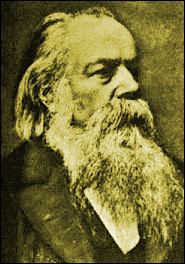
Henry Vincent was an English religious leader. active in the formation of early Working Men's Associations in Britain, a popular Chartist leader, brilliant and gifted public orator, prospective but ultimately unsuccessful Victorian member of parliament, and later an anti-slavery campaigner.
Richard Spurr (1800–1855) was a Cornish cabinet maker and lay preacher who was imprisoned for his part in leading the political movement Chartism.

Heronsgate is a settlement on the outskirts of Chorleywood, Hertfordshire founded by Feargus O'Connor and the Chartist Cooperative Land Company as O'Connorsville or O'Connorville in 1846.

London Chartism, 1838–1848 is a 1982 book-length history of the 19th century Chartism social movement in London, as written by David Goodway and published by Cambridge University Press.
Elizabeth Neesom was a prominent English Radical, Chartist, school teahcer, social reformer, and advocate for the rights of women. She was the founding secretary of the London Female Democratic Association (LFDA) and later secretary of the Female Patriotic Radical Association.
References
- ↑ "London Chartism". www.historyhome.co.uk. Retrieved 11 January 2009.
- 1 2 Chase, Malcolm (2007). Chartism: A New History. Manchester University Press. p. 10. ISBN 978-0-7190-6087-8.